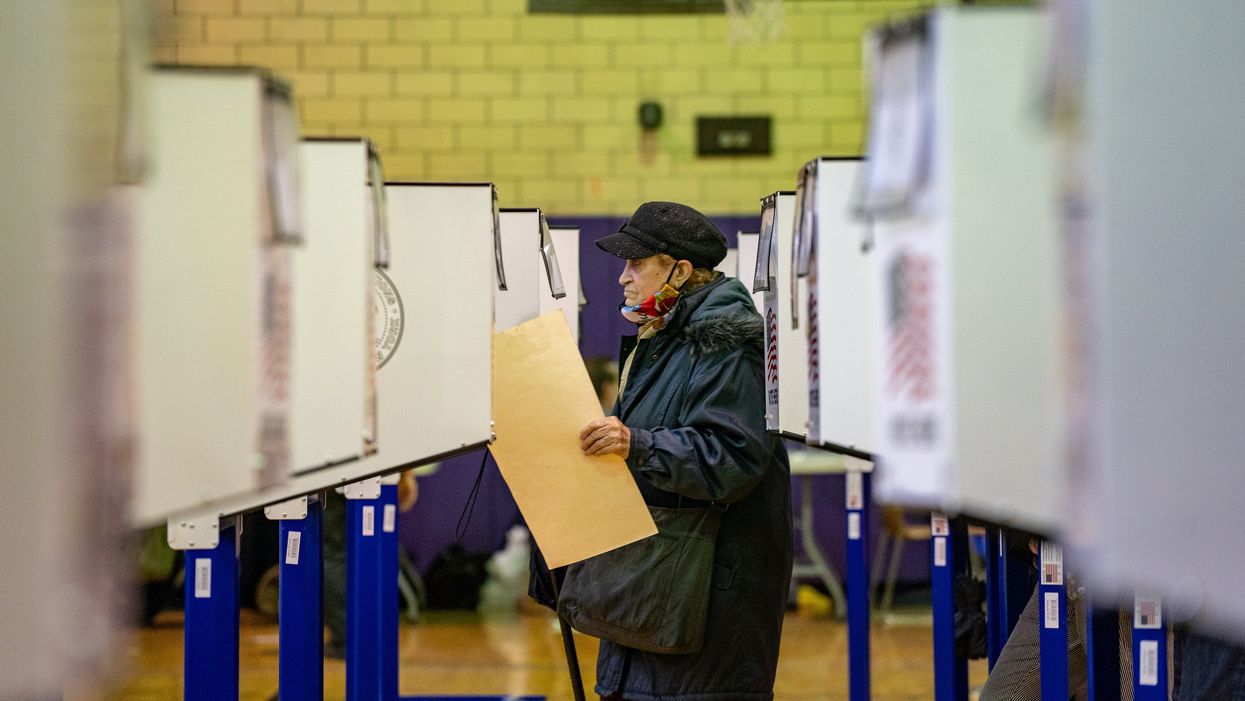Tangirala is a first-year student planning to major in math at the University of Texas at Austin.
The Republican Party isn't our do-all end-all. The Democratic Party isn't our do-all end-all. And neither President Trump nor Joe Biden will, by themselves, determine the fate of our country for the next four years.
It may be tough to remember this Election Day, but most people do not entirely conform to any political denomination. In fact, even as we're picking a president in what ends up being the ultimate partisan decision, many of us are beginning to realize that partisan politics have eroded to a point beyond rational thought. Both the right and the left are governed by forms of mob rule and simplistic slogans. "Pro-life" or "pro-choice," for example. It's utterly absurd how the debate over such a life-altering matter has devolved into a political war-cry instead of an active effort to find a resolution that acknowledges the non-binary nature of the issue.
This is not to say partisan politics is unimportant or that we should neglect it. However, we must remember that no political party has all the answers or is wrong on all its solutions. And so we, the people, should be controlling politics.
Far too many times this year, people on both the right and the left have valued the opinions and ideologies of their elected representatives above the notion they should be formulating their own. Most notably, Trump has persuaded millions of his fans not to accept wearing a face mask as the best way to avoid becoming a coronavirus pandemic victim, and his wavering on that view does not erase the fact that thousands have claimed the president's mask-are-pointless position as their own. It is, to say the least, unfortunate that people cannot think for themselves in a country that prides itself on free speech.
Therefore, we must learn to pursue change at the grassroots and not allow powerful political agendas to influence our social equity goals. When I vote, I always consider the candidate before the party. This — the constitutional notion of the power belonging to the people — will elicit far more progress than purely putting your faith in a politician who speaks using flowery language. This is the true power of democracy.
According to Gallup, 25 percent of Americans identify as Republicans, 31 percent as Democrats and 40 percent — a plurality — as independents. If all of them had aligned behind one like-mindedly independent candidate, we would not be on the verge of re-electing Trump or replacing him with Biden. If our politics reflected our views, we would end up with a president who doesn't conform to the two-party system. This in itself speaks volumes as to the hyper-polarized nature of the two-party system.
Before graduating from high school this year I launched the Anti-Racist Curriculum Reform effort to persuade school districts to teach more about racism and include more perspectives of people of color in social studies. Other fellow teenagers in the Houston suburbs have launched another nonpartisan initiative to reform policing by tightening the rules for officers using body cameras.
Yes, we utilize the help of political figures who may help further our causes, but we won't depend on them. Our mindsets as civilians and constituents require the same approach.
Politicians are our representatives, not the other way around. As constituents, our duties include informing our representatives of our concerns in society and utilizing their help, if applicable, to ensure necessary improvements.
However, we should not be digesting every word of theirs as gospel and then treating every other view as sacrilege. This is happening far too much in the present climate. It needs to stop. We aren't living in a movie where Biden is our hero, and Trump the villain. Remember, the former vice president has acted as a champion of people of color like me — and said some pretty insensitive things about race along the way. Maybe they were slips of the tongue or hyperbole, and most don't doubt he wants to do some good. But intention is often not the same as the reality that accordingly befalls.
And while Trump is wrong on many different accounts, being wrong doesn't automatically make the views of everyone opposing him correct. Some of them may also be wrong. We don't live in a world where everything said about policy and politics is mutually exclusive.
Regardless of our political denomination, we need to be open to discourse and treat every sentence coming out of every politician's mouth with the sort of skepticism we now too often apply only to those we view as political opponents.
In a few hours, voting will be over. Now learn to think for yourself. If you are a devotee of any politicians, remember they are humans just like the rest of us. Remember that at the end of the day, your voice — and your individuality of thought — is what matters most.



















